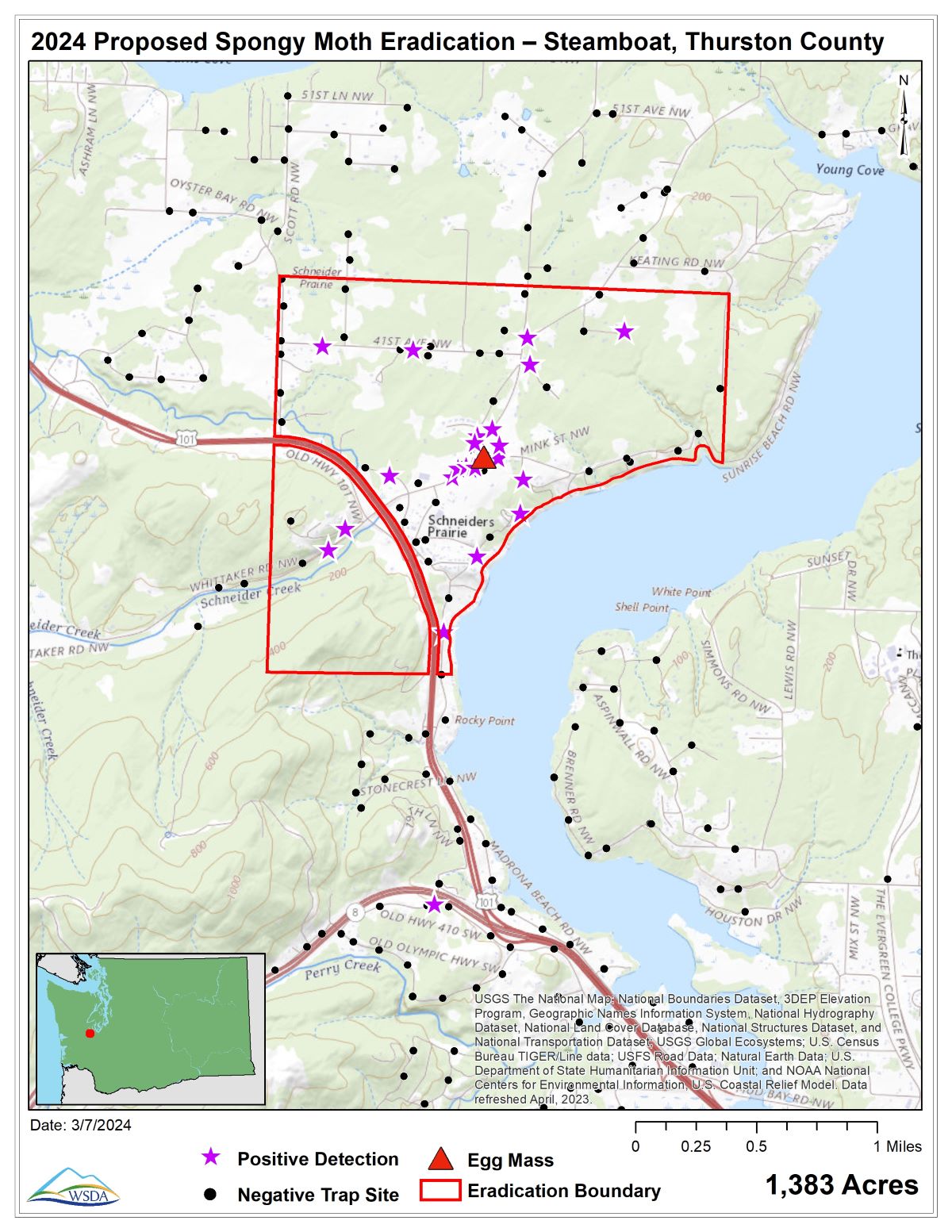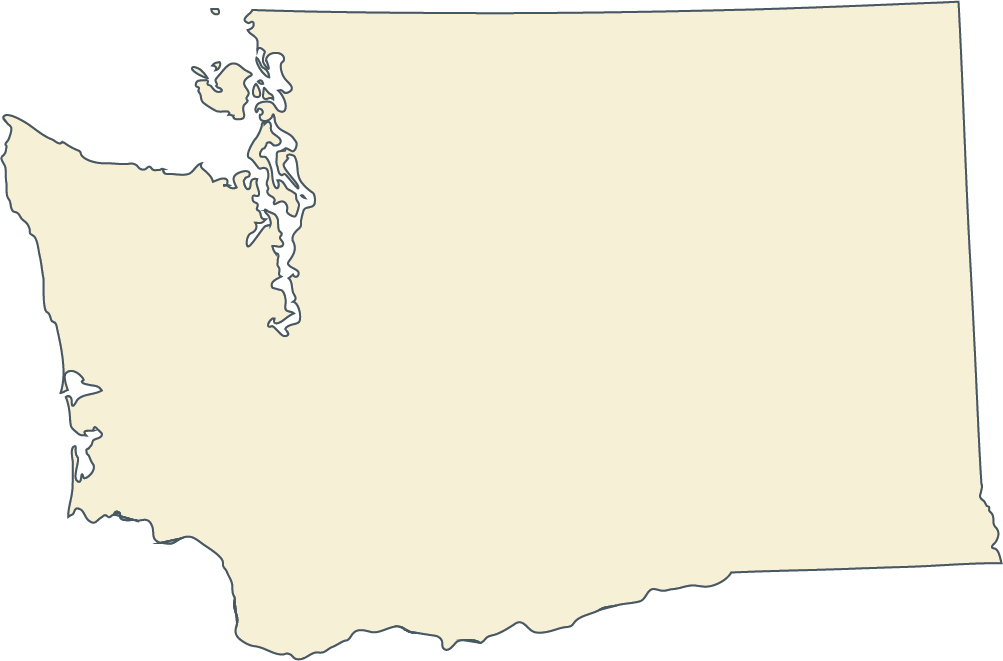Spongy moth treatment updates
The first aerial treatment using Btk was completed Friday, May 10 in Thurston County. The second aerial treatment using Btk was completed Thursday, May 16 in Thurston County. The third and final aerial treatment using Btk was completed Monday, May 20 in Thurston County.
The first aerial treatment using Btk was completed Monday, May 20 in Skagit County. The second aerial treatment using Btk was completed Thursday, May 23 in Skagit County. The third and final aerial treatment using Btk was completed Friday, May 31 in Skagit County.
This completes all spongy moth treatments this year. WSDA would like to thank residents for support during spongy moth treatments to help protect Washington State from invasive species.
The first aerial treatment using Btk was completed Monday, May 20 in Skagit County. The second aerial treatment using Btk was completed Thursday, May 23 in Skagit County. The third and final aerial treatment using Btk was completed Friday, May 31 in Skagit County.
This completes all spongy moth treatments this year. WSDA would like to thank residents for support during spongy moth treatments to help protect Washington State from invasive species.
Treatments planned
WSDA's Pest Program is planning to treat 2,303 acres in Thurston and Skagit counties for spongy moths. The proposal comes after 103 spongy moths were caught in 2023, most of which were in the proposed treatment areas.
Treatments are expected to begin early- to mid-May, depending on the weather and modeling. To receive notice when treatments are scheduled, sign up for email, text, or robocall alerts (above).
The treatments involve using an airplane to spray Bacillus thuringiensis kurstaki - more commonly known as Btk - in the treatment areas. Btk is a soil-based bacteria that is toxic only to caterpillars. It is one of the most commonly used insecticides in organic agriculture and the formulation that WSDA uses - Foray 48B - is approved for use in organic agriculture. It has an excellent safety record around the world for humans, pets, mammals, fish, birds, and bees. Learn more about Btk and human health.
Treatments are expected to begin early- to mid-May, depending on the weather and modeling. To receive notice when treatments are scheduled, sign up for email, text, or robocall alerts (above).
The treatments involve using an airplane to spray Bacillus thuringiensis kurstaki - more commonly known as Btk - in the treatment areas. Btk is a soil-based bacteria that is toxic only to caterpillars. It is one of the most commonly used insecticides in organic agriculture and the formulation that WSDA uses - Foray 48B - is approved for use in organic agriculture. It has an excellent safety record around the world for humans, pets, mammals, fish, birds, and bees. Learn more about Btk and human health.
Maps
Click on the images of the maps below to download printable pdf versions of the maps. Please note: while the map of the treatment area may include areas over water, the treatments themselves are not conducted over water and include a water buffer.
You can also use the link below to find our interactive, searchable map. In the interactive map, you can enter an address and see if it is in, near, or outside of a proposed treatment area.
You can also use the link below to find our interactive, searchable map. In the interactive map, you can enter an address and see if it is in, near, or outside of a proposed treatment area.
See button to download state environmental policy act
See button to download state environmental policy act
See button to download determination of non significance
Stay Informed
There are multiple options for staying informed about the 2024 spongy moth eradication proposal.
Please be aware that alerts for the start of treatment may occur as early as 5 a.m.
If you have trouble signing up for text messages or phone calls, please contact us at 1-800-443-6684 or email us at pest@agr.wa.gov. Let us know whether you would like to sign up for text messages or phone calls, which location you would like to receive information about (Thurston or Skagit), and what number the messages should be sent to.
E-mail
Join the spongy moth e-mail list to receive updates about the spongy moth project. By signing up for our email list, you'll receive periodic updates about the project as well as information about planned treatments. However, if you would like near real-time treatment updates, please sign up for text messages of phone calls (above).
Text messages and automated phone calls
Sign up to receive text messages or an recorded phone message with project updates and, if the project is approved, treatment updates. Text messages and phone calls will provide real-time alerts such as the start of a treatment, the end of treatment, if a treatment is delayed, etc.Please be aware that alerts for the start of treatment may occur as early as 5 a.m.
| Text keywords to 1-800-443-6684 | Thurston County keywords | Skagit County keywords |
|---|---|---|
| Text messages | JOIN THURSTONTEXT | JOIN SKAGITTEXT |
| Phone calls | JOIN THURSTONCALL | JOIN SKAGITCALL |



